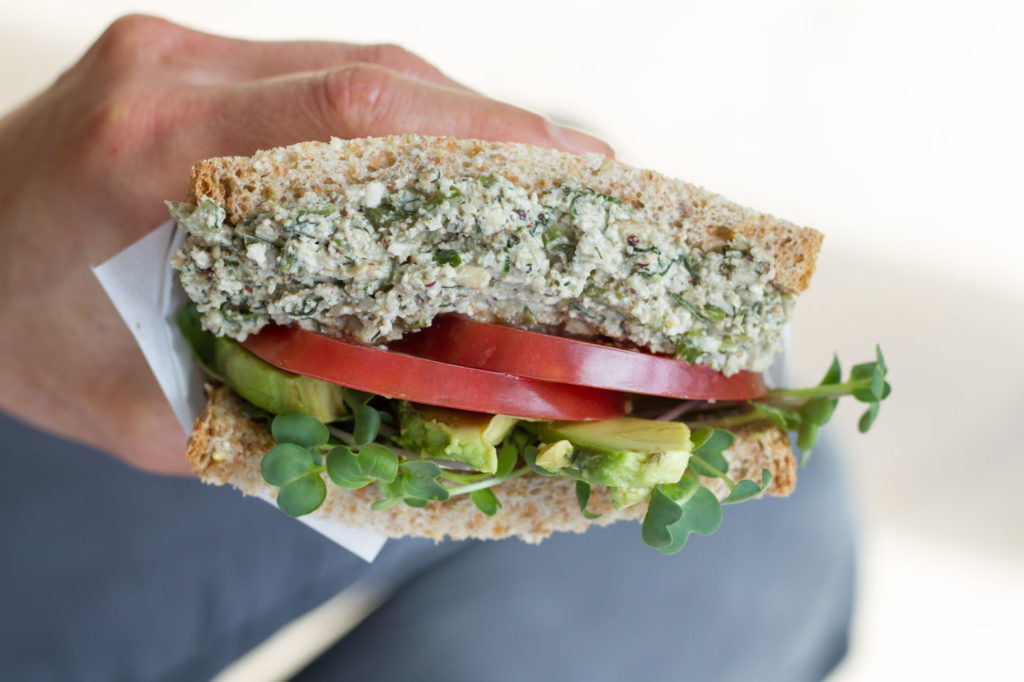Today’s world of health and nutrition can be very confusing and misleading. Authors, companies and products continue to complicate things and promote a shortsighted approach to health. We have been conditioned to go after overnight miracles without putting in much effort. Many people would do anything to reach their goals, even if it means sacrificing their health and longevity.
High-protein, low carb diets, expensive supplements, products that claim to burn fat while you sleep—sure, some of these could deliver results, but at what cost to your health? The only way to enjoy vibrant health and longevity is by eating and living naturally.
Plant-based diets are becoming popular these days and rightfully so. Elimination of animal protein, refined and chemical-laden foods gives you the potential to shed excess weight, increase energy and dramatically improve your health and overall well-being. But only if done right! Eating processed food (even if it’s labeled “vegan”) is not the answer!
If you are interested in eating a healthy, sustainable plant-based diet then this article will help you get started.
What Is A Plant-Based Diet?
Plant-based or whole food plant based (WFPB) diet is focused on foods primarily from plants. This includes fruits, vegetables, herbs, nuts, seeds, plant oils, whole grains, legumes, and beans. You do not need to label yourself vegetarian or vegan and never allow yourself to eat animal products again. Rather, you are basing your meals around foods from plant sources.

Benefits Of A Whole Food Plant-Based Diet
Whole, organic plant-based foods have the most amount of nutrition and the least amount of calories. These foods are “living” and come packed with vitamins, minerals, enzymes and antioxidants that are essential for optimal health. Whole plant foods are also alkaline-forming, which helps reduce inflammation as well as enhancing bone health and immunity, among other amazing benefits.
Results You Can
Expect Eating A
Plant-Based Diet
- Less digestive stress
- Improved energy levels
- Diminished cravings
- Improved heart health
- Improve insulin sensitivity
- Faster recovery from exercise
- Reduced body fat
- Greater ability to build healthy muscle tissue
- Increased strength and stamina
- More restful sleep and less need for sleep
- Enhanced memory, mental clarity and power of concentration
- Ability to focus more clearly
- Better and younger-looking skin
How To Get Started On
A Plant-Based Diet
“Came from a plant, eat it; was made in a plant, don’t.” —Michael Pollan
Start by thinking of your plant-based journey as “an abundant lifestyle.” Focus your attention on the things that you are adding rather than the things you are taking away. It’s our human nature to avoid pain, so by choosing to focus on the lack, you will create suffering, and it will be quite challenging to change your old habits.
Here are some general guidelines for you to keep in mind as you begin your new whole food plant-based diet:
- Nourish your body with clean, whole, natural foods and avoid refined, processed and junk foods.
- Choose organic and local whenever possible
- Eat produce that is in season (Seasonal Produce Guide – Printable Charts)
- Eat real food, rather than relying on supplements
- Drink a smoothie or fresh juice each day
- Stay hydrated
- Eat foods you enjoy and that agree with you
- Eat until satisfied; do not overeat
Sample 1-Day Plant-Based Meal Plan

Breakfast – Morning Cleanse Smoothie
Snack – Fresh Fruit
Lunch – Mock Tuna Sandwich
Snack – Tahini Lime Energy Bar
Dinner – Vegan Thai Curry In a Hurry
Remember, a whole food plant-based diet is not about depriving yourself! Rather focus on making small, long-term changes. When you start being more conscientious about the food you consume, you will begin to notice the great impact they have on your health and well-being. Why not get started today?

